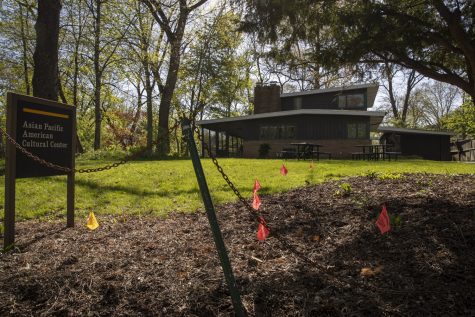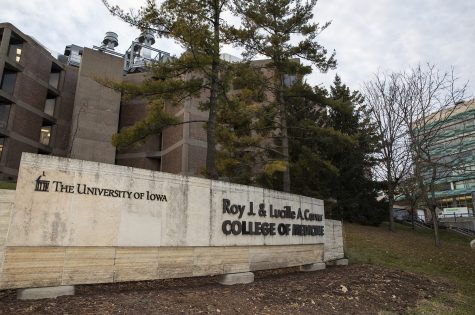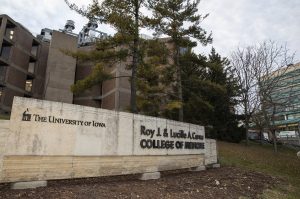UI student governments ask Iowa City to forgive utilities for unemployed students, residents
As Iowa City residents and University of Iowa students face financial struggles, UI student government representatives wrote a letter to the Iowa City City Council to echo correspondence from the Affordable Housing Coalition for utility relief.
May 6, 2020
The University of Iowa Undergraduate Student Government and Graduate and Professional Student Government wrote a joint letter April 29 asking the Iowa City City Council to consider forgiving utility fees for unemployed students and residents, amid financial uncertainty in the COVID-19 pandemic.
The letter states that a significant portion of the local population is composed of students who are struggling financially because of novel-coronavirus mitigation measures. Many students are currently unemployed due to business closures and unable to receive state and federal aid efforts as the CARES Act excludes those who are over age 16 and claim dependency — eliminating aid eligibility for many students.
USG City Liaison Ryan Longenecker said the idea stems from a nationwide push for rent relief and freezes toward the beginning of the pandemic. He researched what the city would be able to do on a local level and found that the city council doesn’t have legal authority to legislate around rent but utilities are under city officials’ jurisdiction.
He said the student governments’ letter was further encouraged by correspondence from the Johnson County Affordable Housing Coalition April 15, that advocated for councilors considering forgiveness of water, sewage, and trash pick-up bills for households with one or more unemployed adults. It also recommended that the relief period start immediately, with proof of unemployment benefit filing or a letter from the previous employer documenting the termination or layoff.
RELATED: University of Iowa students may soon apply for funds from $16 million CARES Act share
“The city council’s response to the Affordable Housing Coalition wasn’t a flat out no,” Longenecker said. “They said that they were open to it, and that they were just needing to figure out what their finances were going to look like, given that they’re having a loss of revenue. So, I thought if that was their reaction from one organization, then another letter from organizations that represent all students at Iowa would be another big push to send them in that direction.”
The City is expected to lose $4.6 million in fiscal 2020 and $9.76 million in fiscal 2021 due to property and hotel/motel taxes, intergovernmental and road use taxes, licenses and permits, and charges for services such as utility, parking, and transit fees. The correspondence was not discussed at the city council’s May 5 meeting.
USG President-elect Connor Wooff said if the city doesn’t choose to provide utility relief there are still ways for students to apply for funds to help them in their financial struggles.
“The organization as a whole has been working on a lot of COVID related things ever since the pandemic started,” Wooff said. “We’ve supported the student emergency fund with over $100,000 for students to apply for and we’re constantly trying to make sure that we’re keeping student’s interests in the minds of administration as they make decisions.”
GPSG Government Relations Chair Paul Esker said the UI Student Emergency Relief Fund — largely funded by USG and GPSG and administered by the Office of the Dean of Students — continues to have more applications and assistance still pending.
RELATED: USG passes bill, allows executives to move funds to Emergency Support Fund
According to the Office of the Dean of Students website, the emergency funds range between $50 to $350 and are for students who are experiencing “an event or unforeseen circumstance that negatively and severely impacts their academic success.”
Esker said applications for Relief Grants through the CARES Act, which awarded the UI roughly $16.2 million in April opened May 4 — $8.3 million of which was set aside to fund student aid.
The Office of the Dean of Students website said students should apply for the Relief Grants prior to applying for the Student Emergency Fund, because the grants are institution funds provided specifically for students who are experiencing financial hardship due to COVID-19.
“The University of Iowa is doing a great job supporting students right now,” Esker said. “So, the utility relief would [be] good, but if it doesn’t happen we still trust that the university is going to step up and support its students.”





















